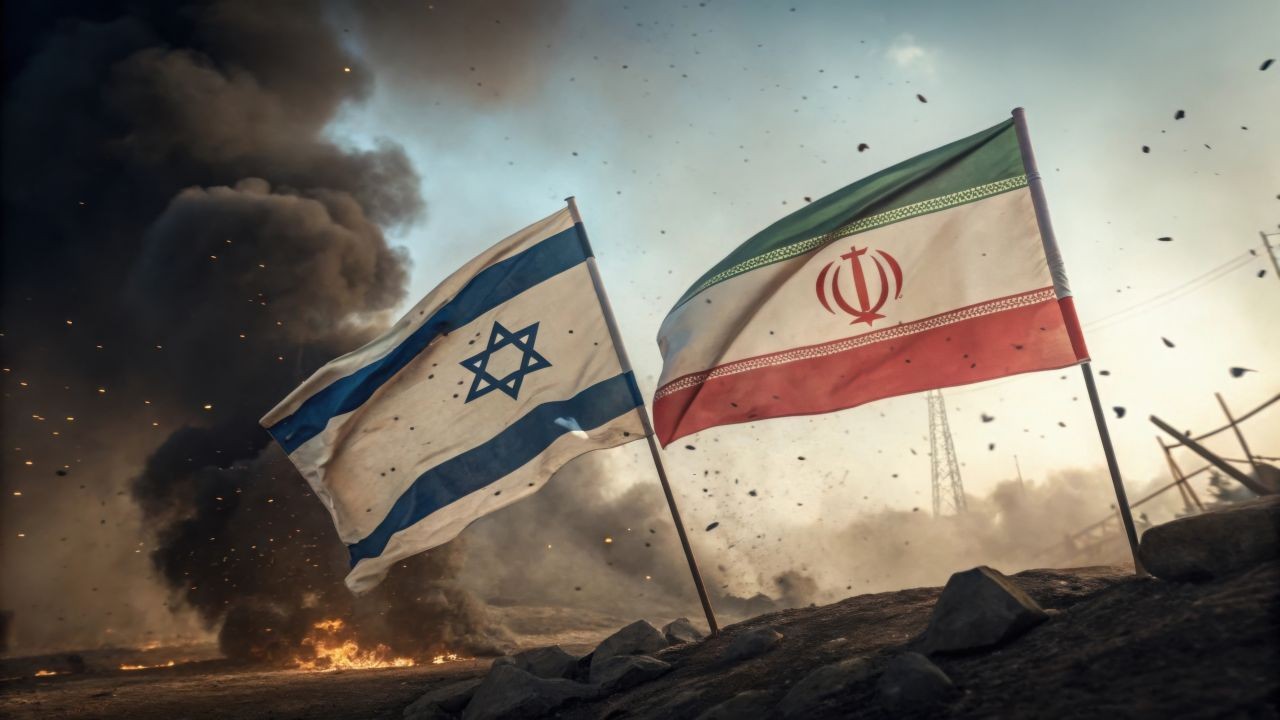Trump's war and Iran's weapons
What was certain, even before the American strike on Iran, is that the war initiated by Israeli prime minister, Benjamin Netanyahu was effectively Trump's war. This was a war that ended after 12 days with a fragile ceasefire agreement (as long as it holds) that could lead to a negotiated deal. Ahmad Abdel Rahman analyses the situation.
US President Donald Trump wanted Israel to wage war on Israel so that it would lead to a US-Iran deal on his terms, and even Israel's, with the goal of zero enrichment, according to "Reuters."
Israel's Prime Minister, Benjamin Netanyahu, eager to eliminate an existential threat in Israel's eyes, participated fully in the war, rather than receiving Trump's support and backing. Trump exaggerated his praise of the Israeli army's performance on the ground and then said that Israel was incapable of completing the mission in Iran, without America. This is a clear indication of the limits of Trump's thinking: a war for a deal, nothing more and nothing less.
The US roleEven after the American strike, the White House leader, who declared that "the Iranian nuclear programme is over," offered Iran a return to negotiations, saying that the choice before it was "peace or tragedy." Instead, Trump threatened harsher strikes in response to Iran's expansion of the war's geography. Iran bombed the US Al-Udeid air base in Qatar.
As for talk by Israeli leaders about toppling the Iranian regime, and drawing a different map for the Middle East, this expresses Israeli desires and reflects regional and international analyses. Some of this talk aims to warn America against rushing into an endless war that clashes with regional and international interests and whose path no one knows.
Other comments are typical of the exaggerations of Iran's supporters. They speak after the war ends of Tehran's victory. They assume, of course, that the regime remains and does not surrender.
Exiting from warWhat is striking is the rush into a war without an exit strategy. This is not only for Israel, which launched what it called a preemptive strike against its leaders and facilities, but also for Iran, which is bombarding Israel with missiles, and for America, which entered the war directly.
The exit strategies of all parties are tied to the decision of another party. Tel Aviv could not exit the war without a US-Iranian deal, which has not yet been clarified, or without Iran's surrender, which is difficult or even impossible. Tehran has linked exiting the war to a cessation of Israeli military operations. A US decision about fighting is dependent on ensuring a deal is reached. Washington would not stop without Iran ceasing its bombing and retaliation, coming to the negotiating table with radical concessions, or scoring a complete military victory. The latter is no longer possible in modern warfare, according to strategic expert Lawrence Friedman.
According to military experts quoted by Politico, It is not true that the fate of the war and the nuclear programme are decided by destroying nuclear facilities, like Fordow. Nothing can put a final and decisive end to this programme. This means that despite the US bombing of Iranian nuclear facilities, the most difficult thing is that these US military strikes will not be able to bomb the brains that have become adept at using all the keys to the nuclear fuel cycle until they reach the bomb and the missile capable of carrying it and using it.
In Tehran's hands, in addition to missiles, drones, and other weapons, there are two important political and moral weapons: the first is the weapon of Iranian nationalism, whereby the opposition and the regime have united on a common position: defending the homeland, regardless of disagreements with the regime and its harshness toward those who hold opinions that differ from the official ideological consensus.
The second weapon is that of Islamic internationalism, or at least "Shiite internationalism". This expresses solidarity with a country and the regime against any aggression against its sovereignty, especially by Israel and the US.
For more news from the Middle East and North Africa (MENA) go to www.lcdmedia.net


Comments